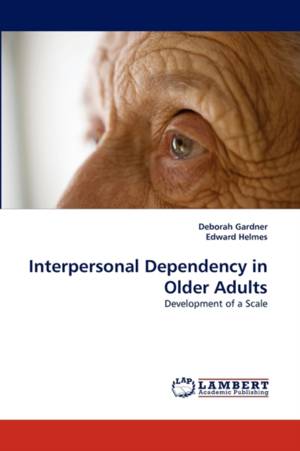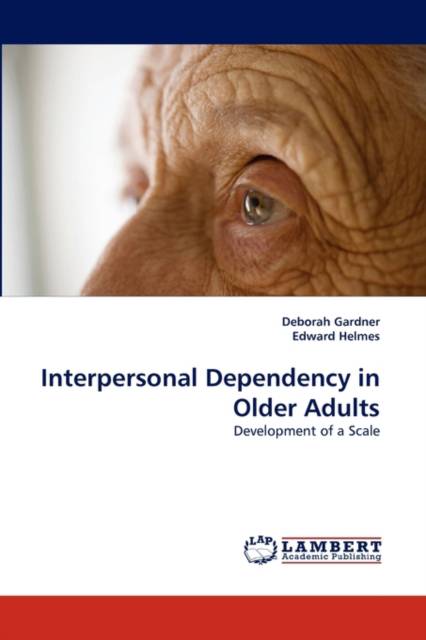
Je cadeautjes zeker op tijd in huis hebben voor de feestdagen? Kom langs in onze winkels en vind het perfecte geschenk!
- Afhalen na 1 uur in een winkel met voorraad
- Gratis thuislevering in België vanaf € 30
- Ruim aanbod met 7 miljoen producten
Je cadeautjes zeker op tijd in huis hebben voor de feestdagen? Kom langs in onze winkels en vind het perfecte geschenk!
- Afhalen na 1 uur in een winkel met voorraad
- Gratis thuislevering in België vanaf € 30
- Ruim aanbod met 7 miljoen producten
Zoeken
Interpersonal Dependency in Older Adults
Development of a Scale
Deborah Gardner, Edward Helmes
Paperback | Engels
€ 75,45
+ 150 punten
Omschrijving
Psychologists have contributed to the understanding of dependency in older age by describing and explaining the functionality of dependency across the life-span. Psychological research has also examined variables (such as the responses of carers to the dependent behaviours of older people) that exacerbate dependent feelings and behaviours (Baltes, 1996), but it has not included an individual difference measure of interpersonal dependency. According to Rosowsky,Dougherty, Johnson and Gurian (1997), an understanding of the ways that personality style affects older adults' engagement and reception of health services would assist providers in planning treatments and services that are more cost effective and attuned to individuals' needs. This research,therefore, developed a measure of interpersonal dependency for use with older adults and evaluated it in a home- care service setting. In addition it was found that both interpersonal dependency and depression were significant positive predictors of mobility in older adults.
Specificaties
Betrokkenen
- Auteur(s):
- Uitgeverij:
Inhoud
- Aantal bladzijden:
- 136
- Taal:
- Engels
Eigenschappen
- Productcode (EAN):
- 9783838384160
- Verschijningsdatum:
- 19/07/2010
- Uitvoering:
- Paperback
- Afmetingen:
- 150 mm x 220 mm
- Gewicht:
- 221 g

Alleen bij Standaard Boekhandel
+ 150 punten op je klantenkaart van Standaard Boekhandel
Beoordelingen
We publiceren alleen reviews die voldoen aan de voorwaarden voor reviews. Bekijk onze voorwaarden voor reviews.









